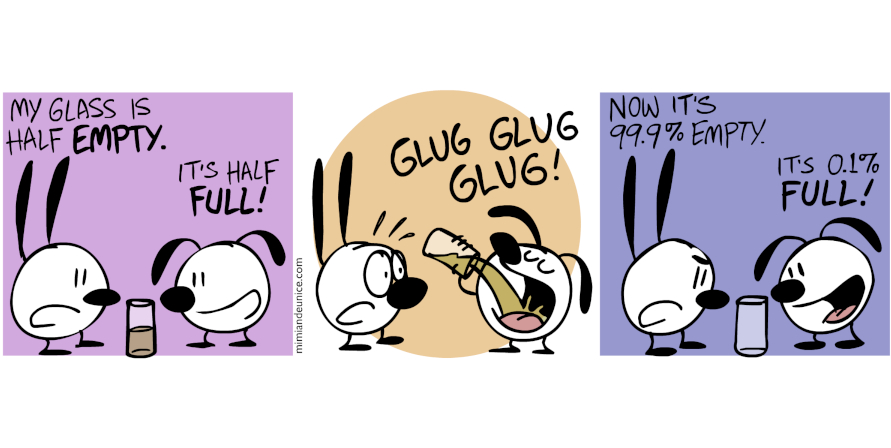Dovetail Diary: Optimism + Hard Work Pays

We were chatting in the office recently about key moments in our working lives and what we learnt from them. I thought it would be nice to share, so here’s the first one! Laura mentioned her uni days and the moment when she realised that that good ol’ chestnut and overstated cliche of ‘optimism and hard work pays’ is oh so true. We often dismiss a cliché as being cheesy and lightweight, but sometimes there’s a lot of truth in them.
Example Cliches, annoying but true!
- “Hard work pays off”
- “The proof is in the pudding”
- “Having a positive attitude does make a difference.”
 “I remember one of my old music tech teachers, who also happened to be a family friend once said to me that I always land on my feet because I make the very best out of any situation good or bad”.
“I remember one of my old music tech teachers, who also happened to be a family friend once said to me that I always land on my feet because I make the very best out of any situation good or bad”.
Making the best out of a situation is not always as easy as it sounds, some of us are more naturally inclined to see the opportunities and the openings a new situation can offer. Whereas others may be more likely to panic or worry and find it hard to see the potential that is now in front of them.
“When my teacher mentioned this to me, I took it as a great compliment, it was something I hadn’t really thought about.
I’ll work as hard as I can, get as much information as I can and keep a positive mindset/outlook no matter what happens.
In difficult circumstances, sometimes the positive mindset can be a lot harder than anything else and working hard feels like the easiest bit.”
An example of why Optimism and Hard Work Pays Off:
“All throughout my degree I wasn’t an average student who went out partying every weekend or left assignments to the last minute and barely did any research. I had a job and at University on weekdays and weekends, I worked hard, often arriving at the British Library at 9 am and not leaving until 7 pm in the wake of a project deadline. I would immerse myself in every assignment as much as I could.
I’d always show enthusiasm and participation with my tutors in 1-2-1s and lectures, raising points (even though I hated speaking in front of a room full of people back then), I’d take their criticisms on board, trying to constantly improve my attainment.
Sometimes my essays would come back with a lower mark than I’d hoped, but I had faith in myself and the confidence
This hard work and effort didn’t go to waste and was noticed by my tutors when it came to deciding what degree classification to award me. I was a few per cent off a first and a few of my lecturers re-reviewed/moderated my work in line with the rest of the years and gave me the extra few per cent I needed to achieve all I’d been striving for.
My commitment to my degree and continued hard work over the three years at Uni made the difference between a 2:2 and a 1st degree. Getting my exam results that day is a moment I will never forget.
Of course, there were other factors that helped me achieve my goal, such as having inspirational lecturers and tutors that supported my learning. There was one lecturer in particular that I can’t thank enough for the time and effort he put in. His support helped me go from a 1st year 60% student, to a 3rd year 77% major project score (which believe me, is not easy!)
When your tutors can give you the dedicated time it makes such a difference, you feel valued, being able to discuss ideas and develop as a result. Sometimes you’ll also form a great relationship out of it, which is an added bonus and all part of the learning journey.
This and of course, I worked my socks off.”
Optimism and Hard Work Pays
Transfer this over into the workplace, and I think this is something we can all relate to.
There are always individuals in the office you might warm to more than others, it’s all about mindset.
Some are simply more bubbly, warm and friendly than others; some bring to the atmosphere, some don’t. And of course, you can never underestimate the power of laughter and even when you’re having a bad day, you can enjoy the lighter side of things.
When you look around your office, I’m sure you’ll know who you’d be sad to see go and those you’d want to stay working with for as long as possible. Now that’s looking outwards, can you take a moment, stand back and look inwards and be true to yourself about what you see? Are you the optimist and bubbly one in the office, that brings – or you on the other side of the coin? A bit of honest self-examination is hard to do, perhaps even be impossible. If you’re really struggling with it, maybe ask those close to you for their thoughts.
So the point is?
If you think you’re someone that’s less optimistic than you’d like to be, can you change it? Are you someone that see’s the glass half-empty or half-full? Do you bring energy to the office? And if not, how do you start to be someone that does?
Here are some pointers on how to have a more optimistic outlook:
- Practice gratitude
When you wake up each morning, think of three things you’re thankful for. It only takes a minute, and it puts a positive spin on the day.
(Also, resist the urge to immediately check the news, which often does the opposite.) - Find ways to make progress toward your goal
Whether you want a new job or you’re launching a new project, taking even small steps forward can give you a larger sense of momentum. - Prioritise connecting with others
Have lunch with friends you haven’t seen lately, set up a gathering – nothing beats socialising with friends and colleagues you’re close to. It’s one of the best happiness boosters.
(source: Harvard Business Review)
Dovetail Related Articles:
Career Skills: Commercial Awareness
How to deal with pressure?
The Art of multi-tasking
For more information on how the Power of Optimism and Hard work pays off, see the sources below:
Harvard Business Review
Very well Mind
Image credit:
http://mimiandeunice.com/2010/07/26/glass-half-empty
